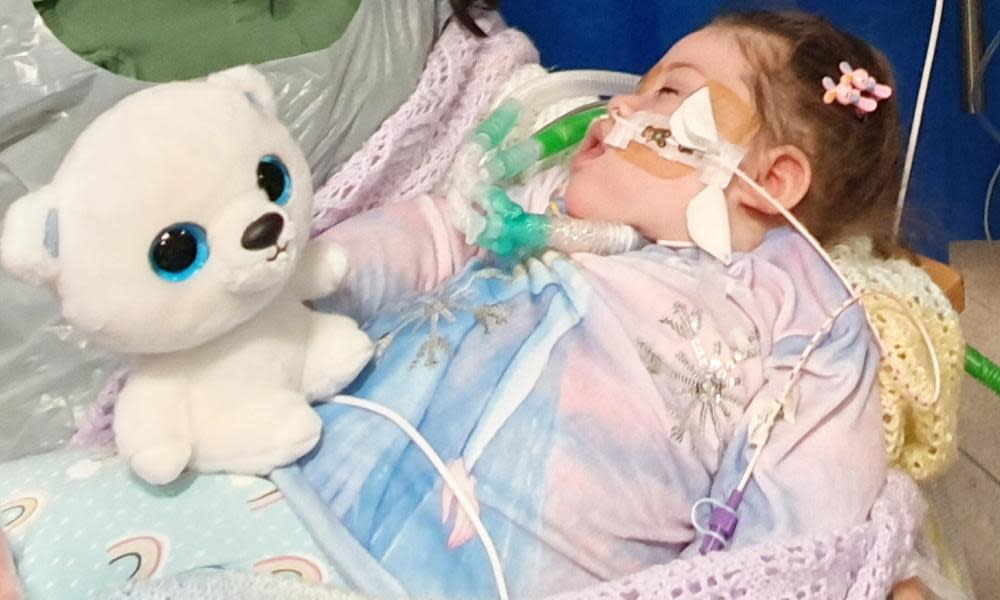Alta Fixsler: European court says UK hospital can withdraw life support

A Manchester hospital may withdraw life support from a seriously brain-damaged child after the European court of human rights rejected an appeal by the girl’s family.
The decision was “devastating” for the parents of two-year-old Alta Fixsler, said lawyers for the family. They “only want to see every option explored to try and save their daughter’s life”, the lawyers added.
Alta, who was born in the UK, is the subject of a legal battle between Manchester University NHS foundation trust, where she has been cared for since birth, and her ultra-Orthodox Jewish parents, who say withdrawal of treatment is against their religious beliefs.
Alta suffered a catastrophic brain injury at birth, and doctors treating her say she has no prospect of recovery. She has no “conscious awareness”, cannot see or hear, and is in constant pain, according to medics.
Following a supreme court ruling that Alta could have her life-sustaining treatment withdrawn, the child’s parents took their appeal to the ECHR, arguing such a move was against their Jewish faith and their rights as parents.
In a letter sent to the Fixslers on Monday evening, the ECHR said it rejected their appeal and agreed with the UK court’s decision to allow the withdrawal of life-sustaining treatment and place Alta on end-of-life care.
Last week, the US state department granted a non-immigrant visa for Alta to travel to the US for assessment and possible treatment. Alta’s parents are Israeli citizens, and her father also has US citizenship.
Hospitals in Israel have also said they are willing to take on responsibility for Alta’s care.
Speaking on the family’s behalf, David Foster, a partner at the law firm Moore Barlow, said Alta’s religion had not been adequately taken into account. “In Jewish culture, one becomes a member of the faith at conception and Alta’s religion forbids the withdrawal of life-saving care.
“We also believe that excessive weighting has been given to ‘causing pain’ as a factor in the decision. We argue that Alta would feel no more or less pain being transported to a hospital in Israel than she would lying in a bed in Manchester – but her chance of further treatment has been denied her regardless.”
Earlier this week, Prof Dominic Wilkinson, a consultant paediatrician at John Radcliffe hospital in Oxford and director of medical ethics at Oxford University, said: “Medicine cannot help [Alta] any longer.”
He told BBC Radio 4: “To keep her alive on machines in a state of consistent pain without any prospect of improvement, with just the prospect of continuing in what [doctors] describe as a state of perpetual silence and darkness … is to harm her.”

 Yahoo News
Yahoo News 
